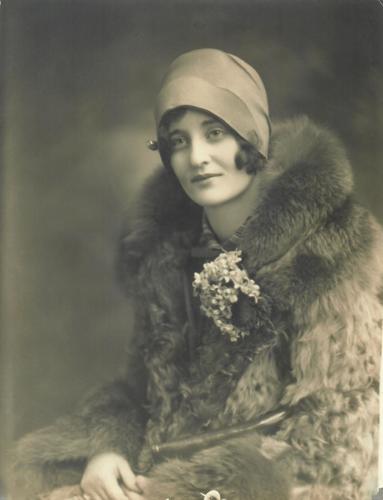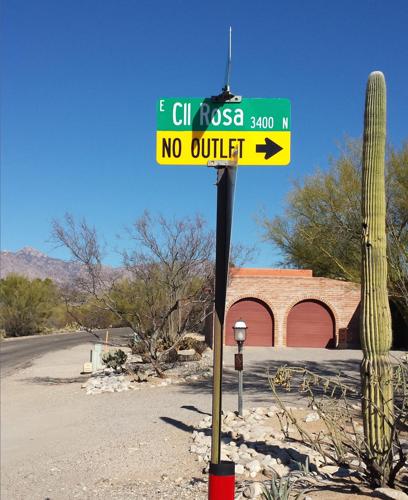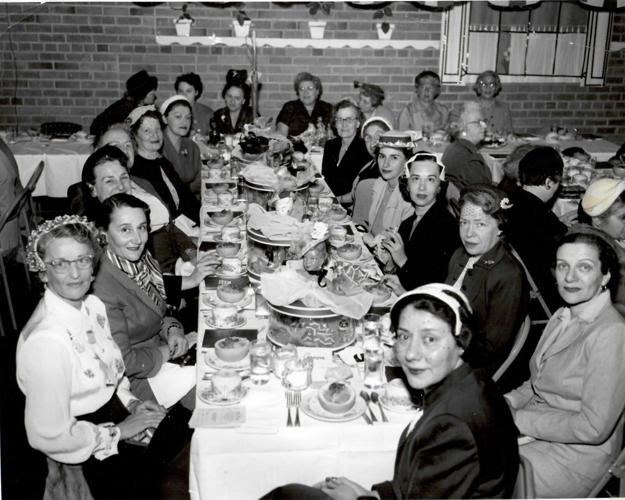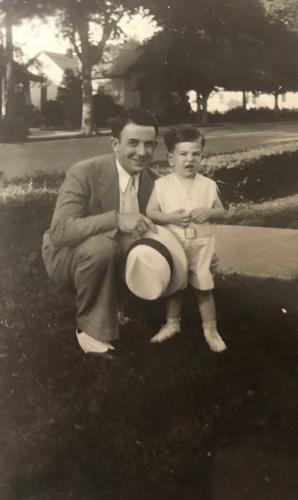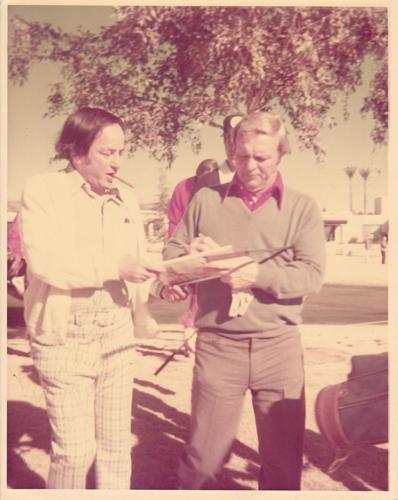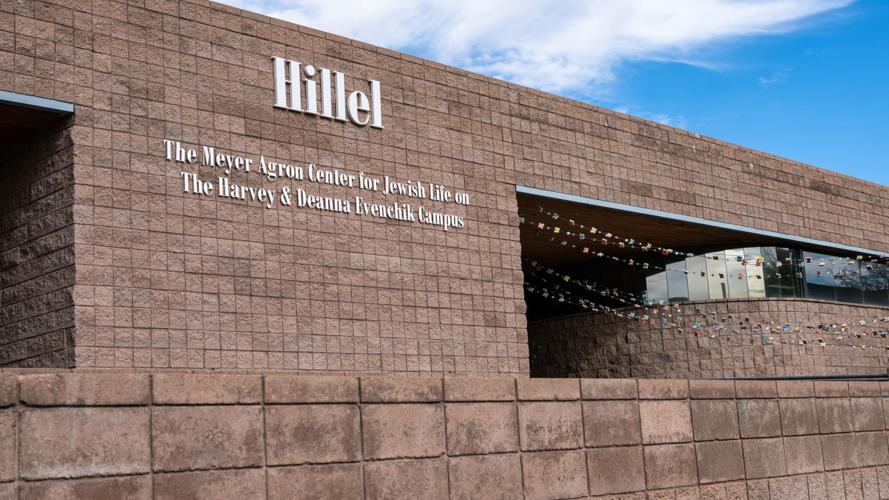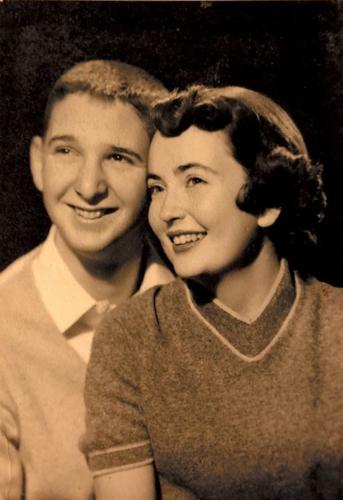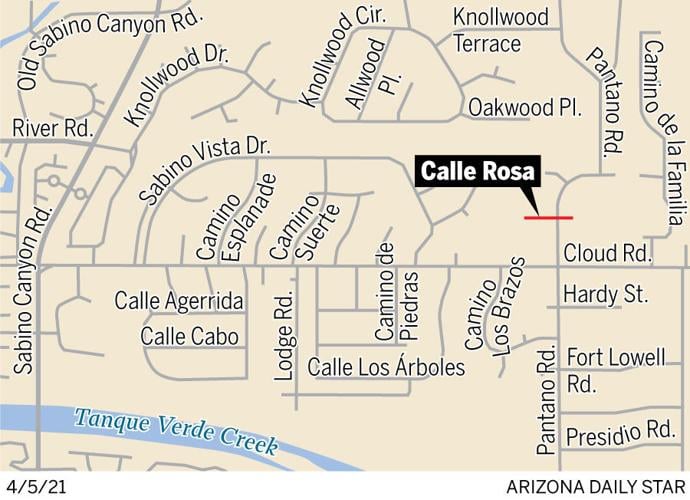Russian immigrant Meyer Nathan Agron was a successful Tucson businessman in ventures including a drive-in theater and a furniture store. His wife, Rose, was prominent in Jewish community service organizations here.
Meyer’s story began in the Russian Empire, where he was born in 1906 under his original name Meier Nahum Agronsky, to Girshe and Elke Agronsky.
Girshe’s parents, Yuda and Hoda Agronsky, left Russia the same year and entered the United States through Ellis Island.
There, according to a family story, their surname “Agronsky” was changed to “Agron” because authorities were cutting off the ending “sky,” saying it would not be needed. “Sky” is believed to mean “son of” or “offspring of.”
Girshe and Elke’s plan had been to have their first child in America, but due to the length of time it took to save the money, Meier Agronsky had three siblings when the family traveled to Liverpool, England, where they departed on the ship the R.M.S. Lusitania for the U.S., arriving in New York City on Aug. 29, 1913.
The family then headed to St. Joseph, Missouri, where other Agron family members had settled.
Around this time, it’s likely that Girshe changed his name to Harry Hirsch Agron, his wife’s name became Anna Elke Agron, and Meier Nahum Agronsky had his name altered to Meyer Nathan Agron. The other children had the names Jule, Fannie and J. Harry.
In the 1920s, Meyer Agron attended Robidoux Polytechnic High School, a vocational trade school. After high school, he wanted to become an attorney and went to a YMCA night school for two years, taking law courses, but this dream of practicing law never panned out.
In April 1930, he and his father Harry incorporated The Buchanan Grocery Co.
In October that year, Meyer Agron married Rose Gold, daughter of Russian immigrants Jacob and Jennie Gold.
Rose continued in her role as president of the Junior Hadassah — the youth organization of the Hadassah, an American Jewish volunteer women’s organization.
In 1932, the couple had their first child, Austin Agron.
The following year, Austin, left in the care of a maid, climbed onto a window sill in their apartment, unhooked the latch and soon plunged three stories to the earth below, luckily hitting an awning of stretched canvas on the first floor, which essentially saved his life.
In 1934, sister Bobbi was born.
Around the time of WWII, the U.S. Selective Service determined that Meyer Agron was unfit for military duty due to hearing issues. As a result, he served as an auxiliary air raid warden. He would walk around at night with a flashlight and Billy club during mandatory blackouts, making sure no lights could be seen in St. Joseph for fear that German bombers would spot the city and bomb it.
By the time of the war, Agron had three grocery stores in St. Joseph, all called The Trading Post. Austin, then around 11 or 12 years old, would sweep the floors, dust the cans on the shelves and scrape off the remains of meat from the cutting blocks.
After the war ended, and with daughter Bobbi’s rheumatic fever worsening, doctors told the family that she would need to be moved to a warmer climate or she might die.
They decided on Tucson because of a boarding school for asthmatics called the Brandes School, located across the street from present-day Park Place. Bobbi spent two years here, from 1946-1948.
While the Agron family had visited Tucson many times to see her, in 1948 they decided to move permanently to the Old Pueblo due to Bobbi’s rheumatic fever.
In their new town, Meyer Agron would become part of many business ventures. The first successful one was the Rodeo Drive-In Theatre, a name derived from the nearby Rodeo Grounds on Irvington Road and Nogales Highway.
The outdoor theater was located on a 10-acre plot just south of present-day Rudy Garcia Park that is now occupied by soccer fields.
Rose continued to raise their children, who were attending Tucson High School before moving on to the University of Arizona, where Austin attended for a little while before joining the military and Bobbi studied elementary education and speech correction.
Rose also continued to work with Jewish organizations. These were the Hadassah women’s volunteer organization, where at one point she held the post of child welfare chairman; the Temple Emanu-El Sisterhood, where she helped raise funds for the Arizona State Schools for the Deaf and the Blind; and the B’nai B’rith women’s chapter, serving as an officer.
During this period, son Austin Agron and Spencer Giffords (father of former Congresswoman Gabrielle Giffords and cousin to actress Gwyneth Paltrow) both attended Tucson High School and also went on double dates together.
In 1951, Austin joined the U.S. Air Force where he served in places like Frobisher Air Force Base in Canada. By 1956, Austin was serving in the Air Force Reserves and received a Commendation Ribbon for his work in creating the administration section of his former base.
Bobbi married Neal Kurn. They would later move to Phoenix where they raised their children Sharon, Jeff and Jenny. Bobbi was actively involved with the Phoenix-based charity Make-A-Wish Foundation for many years.
Austin, who by this time had returned to the UA and was an auxiliary deputy sheriff, married Marilyn Goynshor in 1958. They would have children Randy, Elise and Scott.
By 1958, Meyer Agron opened the Bargain Center Furniture store at 3036 E. 22nd St., near Country Club Road, in a small store near El Campo Tires.
The same year, he had a two-story, 20,000- square-foot store built at the northwest corner of Swan Road and 22nd Street to move into.
In the early 1960s, Austin was working with a radio DJ from K-HOS 940AM named Bobby D., who was doing a remote radio broadcast at Bargain Center Furniture.
Bobby D. saw one of the store’s sale items and exclaimed “Wow, that is a bargain!” He then asked Austin if he knew what the word “bargain” was in Spanish, which Austin didn’t know. So he told him it was “ganga.” From this Austin came up with the slogan “Hey, neighbor, that is a ganga!!,” which was used for years and was very popular among Tucsonans.
In 1964, The Tucson Jewish Community Council named Rose its Woman of the Year for some of the volunteer work she had done.
She died that October.
Around 1970, Austin bought property in a new subdivision in the Sabino Canyon area being built by Mel Zuckerman, who later founded the Canyon Ranch resort.
Zuckerman asked Austin, as well as the Ober family, which had also bought property on a little unnamed street, if they wanted to come up with a street name.
The Agrons and Obers both had family members named “Rose” — Rose Agron and Rose Rofey — and suggested the name to Zuckerman, who created the street name “Calle Rosa” (“Rose Street” in English).
Shortly before he died in 1983, Meyer Agron donated a significant amount of money to the University of Arizona Hillel Foundation, at 1245 E. Second Street.
As a result, two years later, the Meyer Agron Student Center (now called the Meyer Agron Center for Jewish Life on The Harvey & Deanna Evenchik Campus) at the University of Arizona — Hillel Foundation was named in his honor.


